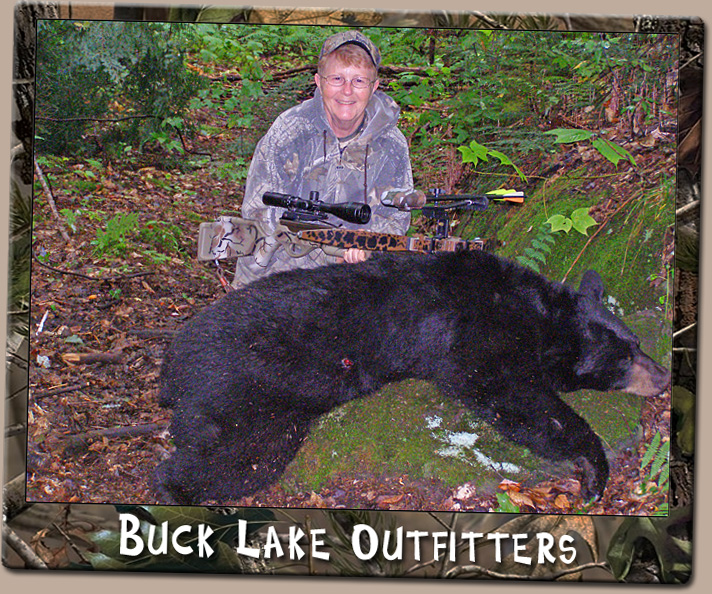

Mating usually occurs in June and July. After mating, fertilized eggs do not implant in the wall of the uterus immediately. The fertilized egg floats free in the uterus until the female is ready to enter the den, typically early to mid October in Ontario. At that time, if the female has attained a body weight of at least 70 kg then implantation occurs and the active gestation of about 60 days begins. If bred females do not gain enough weight in the summer and fall, then implantation does not occur and the female's body absorbs the fertilized eggs.
Although the entire mating season may span almost 2 months, an individual female is in estrus ( ready to ovulate, receptive to males, and able to become pregnant) for fewer than 5 days. During that 5 day period, the pair may mate several times. The male will attempt to keep other males away from the female. During the mating season, male black bears travel extensively searching for receptive females and often fight vigorously for mating opportunities. After the breeding season ends, most large males have recent wounds and scars on their heads and elsewhere on the body. Genetic research carried out by OMNR's studies near Chapleau Ontario showed that more than one male may be the father of cubs from the same litter, and that males may be the father of cubs in more than one litter in a single year. It is likely that larger, older males are more successful in obtaining mating opportunities.